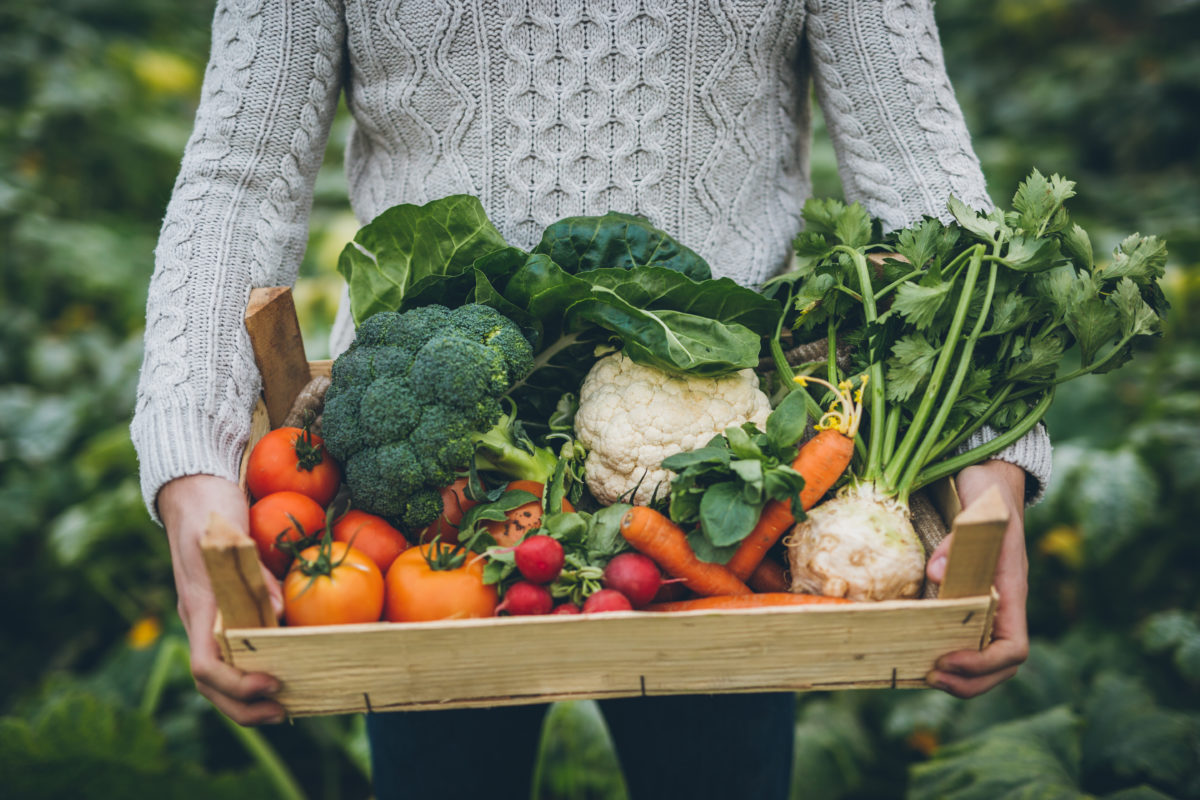Protein is an essential part of our diet, but how how much protein is enough? The National Academy of Medicine recommends that adults consume about 7 grams of protein daily for every 20 pounds of body weight. In practical terms, that means that a 160 lb. adult should aim for 56 grams of protein each day.
And what are the best sources for protein?
Tennesseans love barbecue, hot chicken, and hamburgers. And while these meat sources provide many people with the protein they need, lots of vegetables can, too.
Also, swapping some less healthy dishes for these vegetables can have other health benefits, too. Vegetables tend to be lower in calories and many are rich in vitamins, fiber and other nutrients that help make up a healthy diet. Here are some options if you like veggies or just want to add more to your diet:
- Green peas. Green peas are at the top of the list of the most protein-filled vegetables. Technically, they’re legumes, but many of us consider them vegetables because of their bright green color and delicate flavor. You might be surprised by their protein content, though: a cup of green peas contains about 8 grams of protein. Plus, they’re super easy to serve, since you can toss a handful of peas into almost anything for an extra pop of protein.
- Spinach. A big crisp spinach salad is certainly refreshing, especially on a hot day in the South. But to get the most benefits from this leafy green, go ahead and cook it. A cup of cooked spinach yields 5.3 grams of protein. Other benefits include high levels of iron, folic acid, vitamin C, vitamin K and calcium.
- Collard greens. A one-cup serving of these dark leafy greens (cooked) contains about 5.1 grams of protein, but if you’re like a lot of Tennesseans, you don’t stop with one cup. Cook them with some onion and garlic (and maybe a little vinegar and hot sauce). Skip the ham and bacon if you prefer.
- Sweet corn. Whether you buy it at your local farmers market or grocery store, don’t pass by the sweet corn. A large ear of sweet yellow corn will provide about 4 grams of protein. It’s not as high in fiber and other nutrients as many of the other veggies on this list, but it does contain antioxidants.
- Mustard greens. Your favorite meat-n-three might advertise these peppery leafy greens as an old Southern favorite. A cup of cooked mustard greens contains about 3.6 grams of protein, plus calcium, folic acid, vitamin K, and other nutrients.
- Lima beans. Serve yourself 100 grams of lima beans and get 3.2 grams of protein. They’re high in fiber and easy to prepare. Toss them into some soup to raise the protein content. Lima beans and butter beans are in season in the late summer in Tennessee, but you can get them dried and frozen all year.
- Asparagus. Asparagus is a favorite spring crop in Tennessee. But you can enjoy it all year, thanks to the freezer section at the store. A cup of cooked asparagus contains about 2.1 grams of protein, while a cup of the raw stuff contains just under 3 grams.
- Broccoli. A cup of chopped raw broccoli will yield 2.6 grams of protein, while a cup of cooked broccoli contains about 1.9 grams. Broccoli deserves its reputation as a “superfood” because it’s high in fiber, folates, vitamin C, vitamin K and potassium.
- Cauliflower.A cup of raw cauliflower provides a little more than 2 grams of protein. Cauliflower is also high in fiber and antioxidants. It’s a lot more versatile than you might realize, too; you can even make pizza with it.
- Brussels sprouts. Brussels sprouts have become more popular in recent years — and perhaps for good reason. A cup of cooked Brussels sprouts contains about 2 grams of protein, and lots of vitamin K, calcium, and vitamin C. For more ways to eat Brussels sprouts, click here.
Not sure where to start? Pick a couple of these vegetables, maybe a few that you haven’t eaten recently, and give them another look. You could experiment with different recipes (that can include other non-meat sources that are high in protein) until you find a few surefire winners.
For more information on new ways to incorporate more vegetables into your family’s meals, click here. And for more information on tempting a picky eater into trying new foods, click here.
Get more information about specific health terms, topics and conditions to better manage your health on bcbst.com. BlueCross BlueShield of Tennessee members can access wellness-related discounts on fitness products, gym memberships, healthy eating and more through Blue365®. BCBST members can also find tools and resources to help improve health and well-being by logging into BlueAccess and going to the Managing Your Health tab.



WellTuned provides inspiration and practical advice for healthy living.
WellTuned does not offer medical advice. Any personal health questions should be addressed to your doctor.